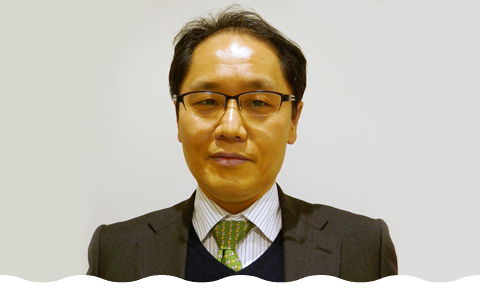
A. I joined the Science and Technology Agency of the Prime Minister's Office in 2000. After that, I became a staff of the Ministry of Education, Culture, Sports, Science and Technology (MEXT) following the reorganization of central ministries and agencies. Then, I was in charge of research and development in various fields, including life sciences, nanotechnology, space development, particle physics, and nuclear energy at MEXT. I have been in my current position since August 2021. Now I am working on the Cross-ministerial Strategic Innovation Promotion Program (SIP) "Innovative Deep-Sea Resource Investigation Technologies" project.
A. The Cross-ministerial Strategic Innovation Promotion Programme (SIP) is a project led by the Council for Science, Technology and Innovation (CSTI) of the Cabinet Office, Government of Japan, aiming to achieve innovation by transcending the boundaries of ministries or agencies and going beyond traditional fields.
A. In the field of ocean resources, we conducted a broad survey of seafloor resources in the seas around Japan in the first phase (2014 - 2018). In following the second phase (2018 - 2022), we focused primarily on the rare earth elements identified in the sea area of Minamitorishima Island region. Therefore, We are conducting studies and research for technological development and future resource development on several issues. Such as how much and how are the rare earth elements distributed, how to obtain mud containing rare earth elements from the seafloor, and how to assess the environmental impact of seafloor resource development.
A. As a result of our efforts to date, the sea area of Minamitorishima Island region has substantial amounts of rare earth elements. Currently, we are developing technologies and conducting surveys and research to salvage rare earth elements from the seafloor at depths of about 6,000 meters to the sea and utilize them as resources while also taking economic efficiency into consideration. For example, about the salvage of mud containing rare earth elements, we are developing a technology to mix soil and seawater on the seafloor and pump it up as muddy water by applying the drilling technology used in offshore oil fields. On the other hand, since the mud pulled up from the seafloor contains many non-rare earth things, we are also considering building a primary refining plant on Minamitorishima Island to concentrate the rare earth elements before transporting them to the mainland. In addition, it is crucial to ensure that the development of such ocean resources does not adversely affect the surrounding ocean environment. Therefore, we are developing a system to monitor the surrounding ocean environment using "Edokko." It is a small underwater observation device designed by medium and small enterprises in Tokyo.
A. The Ogasawara Islands are registered as a World Natural Heritage site. In addition, we have found the sea area of Minamitorishima Island region to contain valuable resources of global importance. I would be happy if people knew that Tokyo is not only a big city but also a diverse municipality with nature and resources.